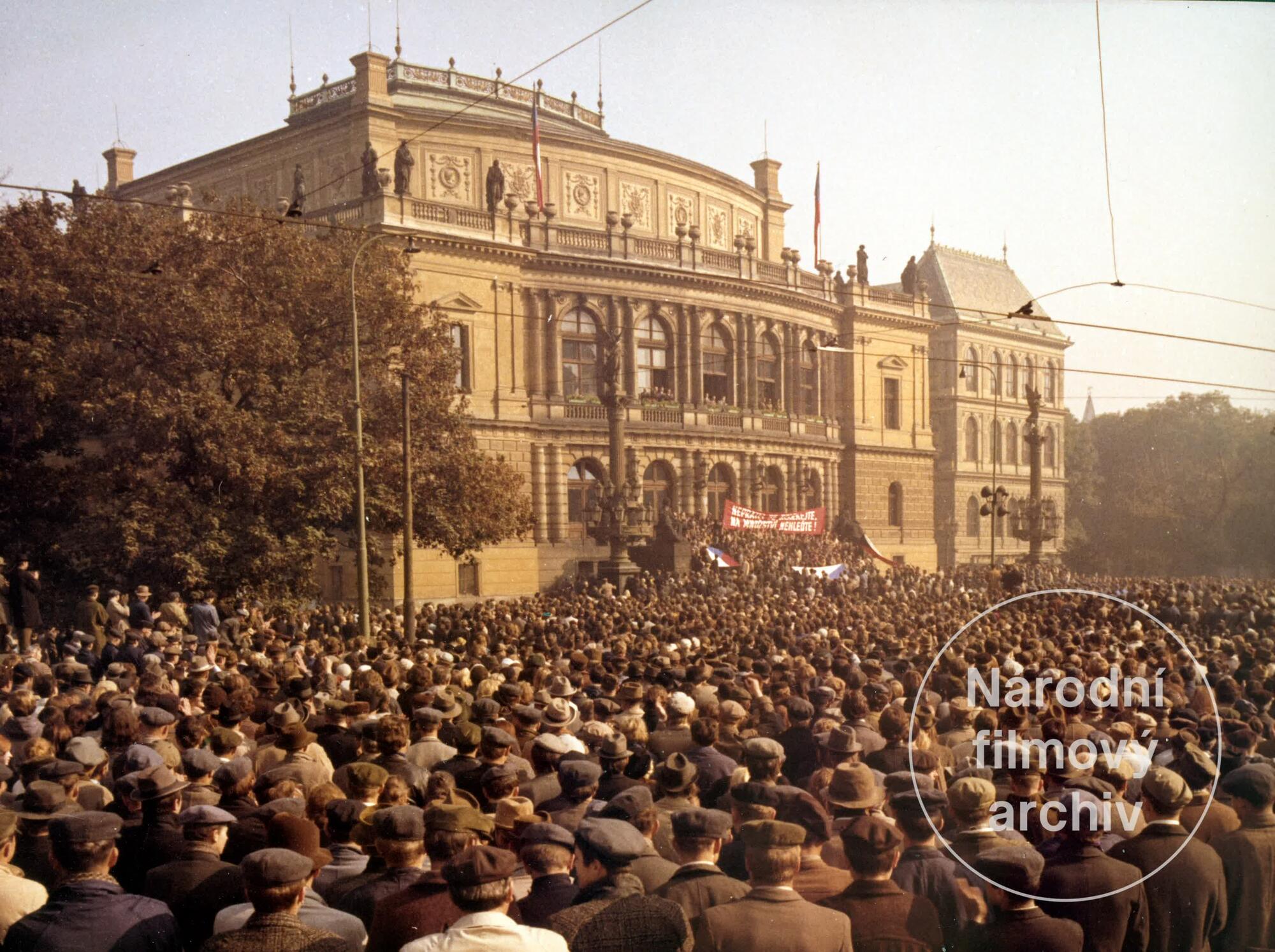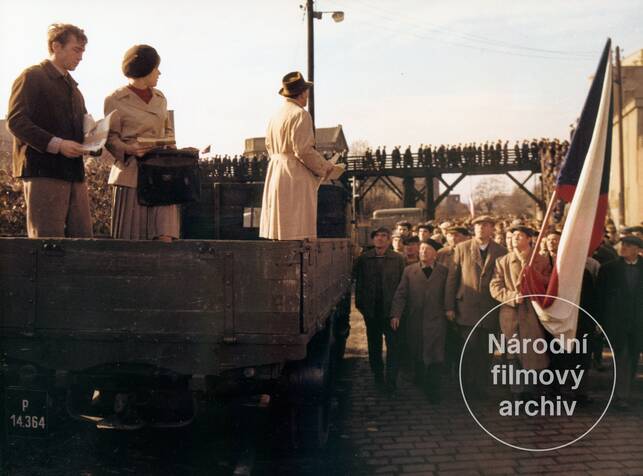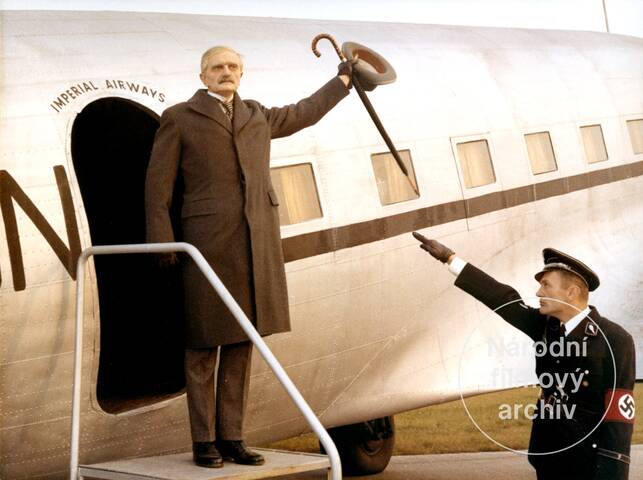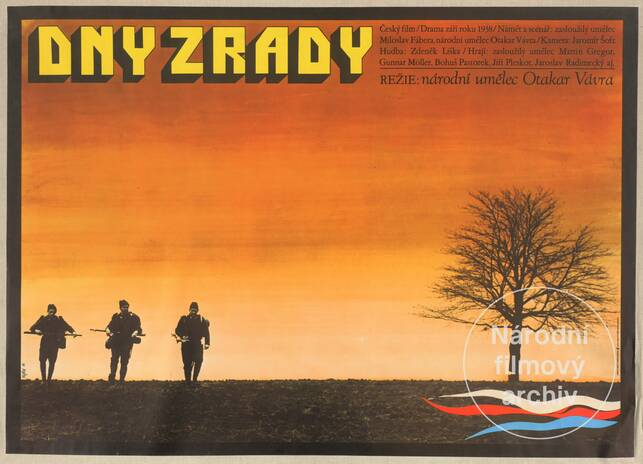Summary
Narrative historical pictures play an important role in the extensive filmography of director Otakar Vávra. In this two-part reconstruction of the events of 1938, the doyen of Czech directing pursued modern Czechoslovak history. Together with the film’s other makers, Vávra indeed grounded himself with the genre of historical reconstruction and a care for authenticity, but Days of Betrayal offers a choice of facts beholden to the ideological concept as specified by the socialist state. Thus the film highlights communist Klement Gottwald as a positive figure, and the Communist Party of Czechoslovakia as having a positive role, in the tragic historical events leading up to the invasion of Czechoslovakia by Hitler’s Germany. The story’s protagonists are not only greats of the political scene at the time, they are also members of a fictional Prague working-class family whose fortunes are also captured in Vávra’s next movies Sokolovo (1974) and Osvobození Prahy (The Liberation of Prague, 1976).
Read more





